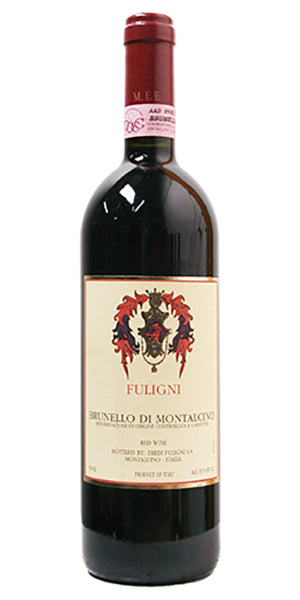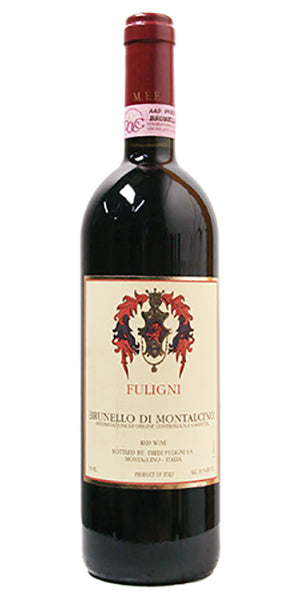Product Review
Bright saturated red. Deep, pure aromas of raspberry, licorice and minerals; a whiff of white pepper and aromatic herbs emerges with air. Sweet, dense, chewy and powerful, offering superb depth and nuance to the rich red cherry, licorice and potpourri flavors. Tactile, serious and extremely long on the fine-grained, lifted finish. Yet another great wine from Fuligni, and a knockout Brunello Riserva.
-- Ian D'Agata
By far the most significant variety in central Italy, it is the main grape in 25 of Tunscay’s 42 DOCs and also the backbone to the region’s most highly acclaimed wines. It’s capacity to adapt and evolve according to its suroundings is partly why it has acquired so many clones and synonyms. In Chianti Classico it is often referred to as "Sangioveto", while in the towns of Montalcino and Montepulicano (not related to the variety grown in Abruzzo) it goes by "Brunello" and "Prugnolo Gentile" respectively. Other synonyms include "Morellino" in southern Maremma, and "Nielluccio" in Corsica. With this in mind it is no surprise there is such variety in styles, varying from light young wines like Chianti Classico all the way through to gloriously rich and powerful Brunellos that can benefit from decade or more bottle maturation. Sangioveses that see little to no oak, typically show bright, tart red fruit of cherries and redcurrants while olives, herbs, and meat juices are noted in more savory examples. The grape’s acidity makes it a good accompaniment to food which is also high in acidity. Tomato based dishes and a great variety of Italian cuisine can pair incredibly well.
Tuscany is practically synonymous with Italian wine. Red wine, principally made from Sangiovese, accounts for most of the region’s production. Whether it’s a light Chianti, bold Brunello di Montalcino, or fruit-forward Super Tuscan there is a wine for just about everyone. Other sub-regions within Tuscany include Maremma, Bolgheri, and Rosso di Montalcino.
Red wine is wine made from dark-coloured grape varieties. The color of red differs based on the grapes variety or varieties used.Interestingly, black grapes yield a juice that is greenish-white. The actual red color comes from anthocyan pigments (also called anthocyanins) from the skin of the grape (exceptions are the relatively uncommon teinturier varieties, which produce a red colored juice). Most of the production centers around the extraction of color and flavor from the grape skin.



